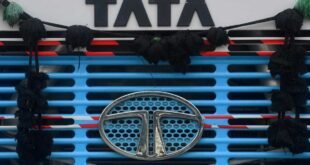US Automakers Express Frustration Over New Trade Deal with Japan
A recent trade agreement between the United States and Japan has sparked significant backlash from American automakers. President Donald Trump announced a deal to reduce tariffs on Japanese imports to 15 percent, including vehicles and auto parts. This move has raised concerns among domestic car manufacturers, who believe it gives their foreign competitors an unfair advantage.
The new tariff structure is seen as a major shift from previous threats of imposing a 25 percent levy on Japanese automakers such as Toyota, Honda, Subaru, Mazda, and Nissan. The Detroit Big Three — General Motors, Ford, and Stellantis (formerly Chrysler) — have voiced their discontent, arguing that the lower tariffs for Japanese imports undermine their competitive position.
Matt Blunt, head of the American Automotive Policy Council, criticized the agreement in a statement, calling it a “bad deal for US industry and US auto workers.” He highlighted that the lower tariff rate for Japanese imports, which often contain minimal US content, could negatively impact domestic manufacturers.
Despite the White House’s claims that the tariffs were intended to boost domestic manufacturing, US-based automakers argue that the policy is having the opposite effect. They are facing financial challenges at a time when they are under pressure to expand operations within the country.
General Motors recently reported a sharp decline in income, with a $1.1 billion drop in the past quarter. The company expects to pay between $4 billion and $5 billion in tariffs this year. Stellantis, which operates brands like Jeep, Dodge, Ram, and Chrysler, lost $2.68 billion in the first half of 2025 while paying $350 million in US tariffs.
Executives from these companies emphasize that even with most production occurring domestically, certain parts must be imported. For example, Ford’s CEO, Jim Farley, noted that while 75 to 80 percent of parts in an F-150 are made in America, some components like fasteners and carpet are not available locally.
The promised job creation from the trade deal has yet to materialize. Combining May and June jobs reports, Americans lost 14,000 manufacturing jobs, despite growth in other sectors.
President Trump hailed the deal as a major victory, claiming it would create “hundreds of thousands of jobs.” As part of the agreement, Japan will purchase 100 Boeing planes and increase defense spending with US firms by $3 billion annually. Last year, Japan spent $14 billion on defense projects with US manufacturing.
Before the agreement, Japanese companies were concerned about the potential impact of a 25 percent levy, fearing higher consumer prices and job losses at US-based factories. Now, they appear to be clear beneficiaries.
On Wall Street, shares of Japanese car brands surged. Toyota’s stock price rose 13 percent in early trading, while Honda, Mazda, and Nissan also saw significant gains.
However, car buyers may not see immediate relief. Erin Keating, an analyst at Cox Automotive, noted that even the lower tariffs are contributing to price hikes. She pointed out that “destination charges” — fees tied to vehicle delivery — have increased since April, when Trump first introduced the automotive tariffs.
Additionally, car companies are preparing for a fresh lineup of 2026 model year vehicles, a period known for price increases. Keating also highlighted that Japanese brands like Toyota and Honda continue to offer affordable sedans, which remain popular among budget-conscious shoppers. In contrast, US automakers have reduced their sedan lineups, while models like the Toyota Camry and Honda Civic continue to sell well.
 Info Malang Raya Its All About World News
Info Malang Raya Its All About World News



